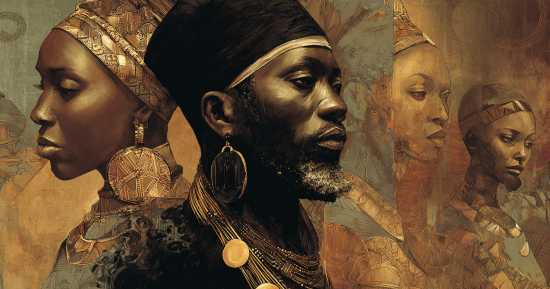
Step into the African History Quiz and journey across a continent where music, art, and community have woven a story far older and richer than most realize. From the bustling markets filled with colorful textiles to festivals that pulse with drumming and dance, Africa’s past celebrates creativity and connection at every turn. Its history belongs not to kings and battles, but to the farmers who cultivated the land, the storytellers who preserved wisdom, and the artisans who shaped beauty with their hands. Through this lens, African history is a living narrative that thrives on joy, tradition, and shared identity.
Generations of Africans built their lives around traditions that strengthened family ties and honored their ancestors in ways that connected them to both past and future. From intricate beadwork in southern Africa to the elaborate masks of West Africa, every creation carried meaning that tied culture to daily life. This rich heritage offers more than memory; it provides a window into how people shaped their world not through conquest but through cooperation, celebration, and shared purpose.
African culture is a mosaic of traditions that span thousands of years, shaped by geography, language, and community. Music stands at the heart of this identity, with instruments such as the djembe and kora carrying rhythms that connect villages and generations. These sounds are not mere entertainment; they serve as a form of storytelling and a way to pass down history when words alone could never capture its full power.
Understanding Africa’s history through its people rather than its conflicts reveals a continent defined by endurance, wisdom, and joy. Its history is not locked in dusty archives but alive in every drumbeat, every marketplace, and every festival that has survived centuries of change. To explore it is to see not only where Africa has been but how it continues to inspire the world through its living traditions and unmatched cultural depth.
7 Fun Facts About African History
- Africa is home to over 3,000 ethnic groups, each with its own unique language and cultural traditions.
- Drumming circles in West Africa often last all night, blending music with storytelling and dance.
- Markets in Marrakech, Morocco, have operated continuously for hundreds of years, serving as cultural meeting points.
- Beadwork in southern Africa frequently uses color to communicate hidden messages and social status.
- The baobab tree, often called the “tree of life,” has been a central gathering point in villages for centuries.
- African proverbs, known for their wisdom, are used in daily conversation to teach lessons and offer advice.
- Many African festivals feature masquerade dances, where performers wear elaborate masks to embody ancestral spirits or cultural heroes.
The Cultural Tapestry of Africa
Visual art in Africa tells its own story. Intricate patterns in textiles, pottery, and beadwork represent symbols of family, heritage, and hope. Each region carries its unique style, but all share a deep respect for craft as a bridge between the past and the present. Through these works, culture is not only preserved but continually reinvented by new generations who keep tradition alive.
Markets across Africa remain a center of community and culture, where trade is more than commerce—it is a social ritual. Here, neighbors greet one another, exchange goods, and pass along news, maintaining a sense of belonging that has endured for centuries. These gatherings illustrate how Africa’s history is anchored not in isolated events but in the steady heartbeat of its people.
Festivals and Community Traditions
African festivals provide some of the most vivid glimpses into the continent’s joyful history. The Timkat Festival in Ethiopia, with its colorful processions and music, brings entire communities together in celebration and renewal. Meanwhile, the Ouidah Voodoo Festival in Benin showcases dance, drums, and cultural pride, drawing visitors from across the world.
Harvest celebrations hold an equally important place in African tradition. In many regions, these gatherings combine music, feasting, and storytelling, reflecting a deep gratitude for the land and those who work it. These events unite families and neighbors, reminding them that their strength lies in cooperation and shared joy.
Even everyday customs, such as communal meals or the tradition of greeting elders first, reflect a living connection to Africa’s past.
Art, Language, and Intellectual Heritage
African history is also preserved in its languages, many of which carry deep cultural knowledge within their words. Oral storytelling, passed from one generation to the next, has served as an informal library for entire communities. Through these tales, lessons, and proverbs, people learn values that guide their lives and ensure that history never fades into silence.
Literature and poetry have also flourished across the continent. Writers like Chinua Achebe and Ngũgĩ wa Thiong’o transformed oral tradition into global literature, introducing African perspectives to readers worldwide. Their works demonstrate that Africa’s intellectual legacy is as powerful and enduring as its music and art.
Architecture, too, reflects Africa’s history of innovation. From the earthen mosques of Mali to the stone-built city of Great Zimbabwe, these creations speak of ingenuity, resourcefulness, and a deep relationship between people and their environment.
7 Serious Facts About African History
- African oral traditions function as historical archives, preserving events and cultural values with remarkable accuracy.
- Many African textiles, such as Kente cloth from Ghana, follow patterns that symbolize historical and cultural narratives.
- The Great Zimbabwe ruins demonstrate advanced urban planning and architectural skill in southern Africa’s early history.
- Traditional African music has influenced modern global genres, from jazz to blues to contemporary pop rhythms.
- Indigenous knowledge of agriculture in Africa has supported sustainable farming practices for countless generations.
/qsm
African History – FAQ
Studying pre-colonial African history is essential to appreciate the continent’s diverse cultures, political systems, and technological advancements before European colonization. It highlights the sophistication of African societies, challenges Eurocentric narratives, and provides insights into the roots of contemporary African issues.
